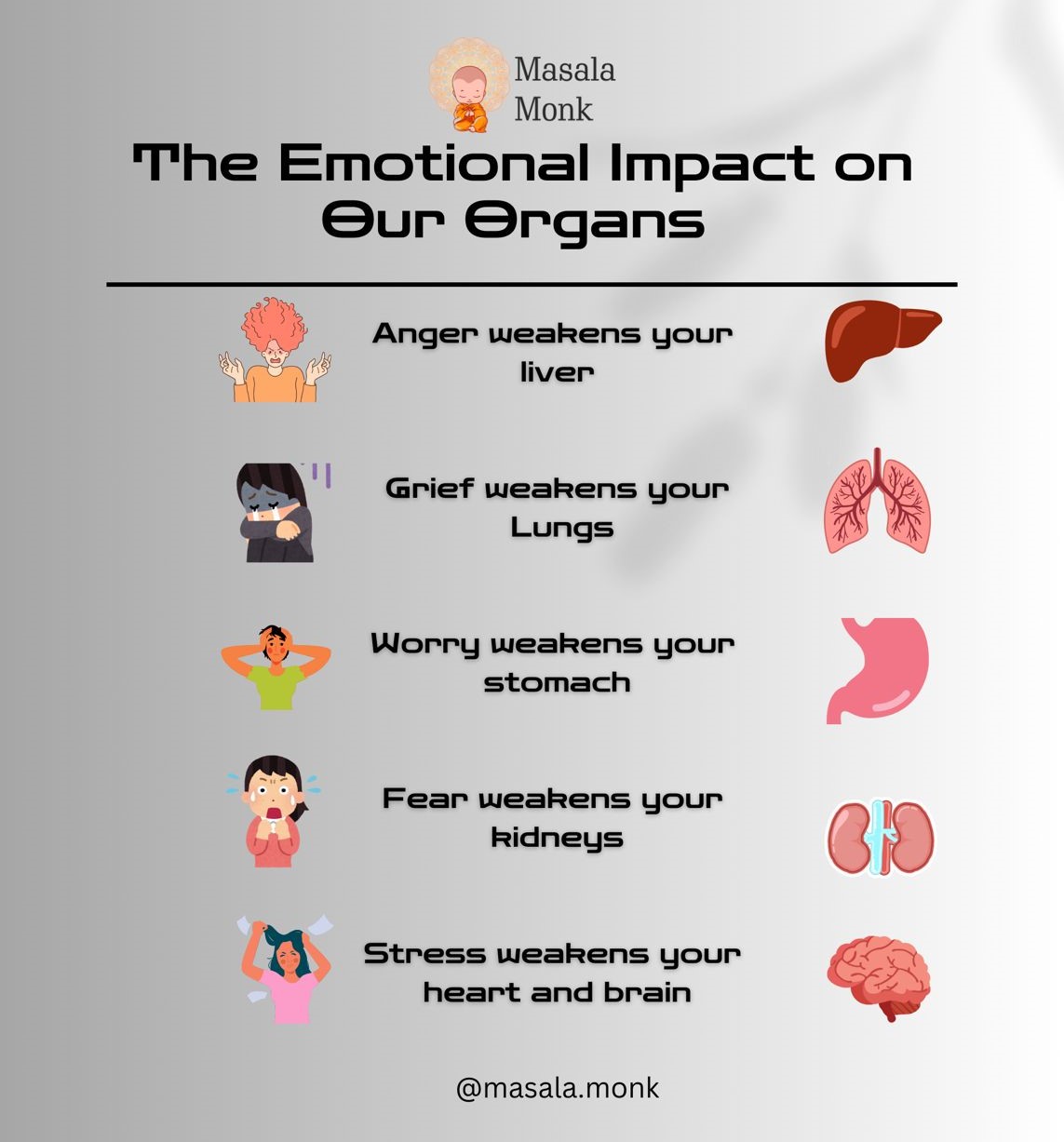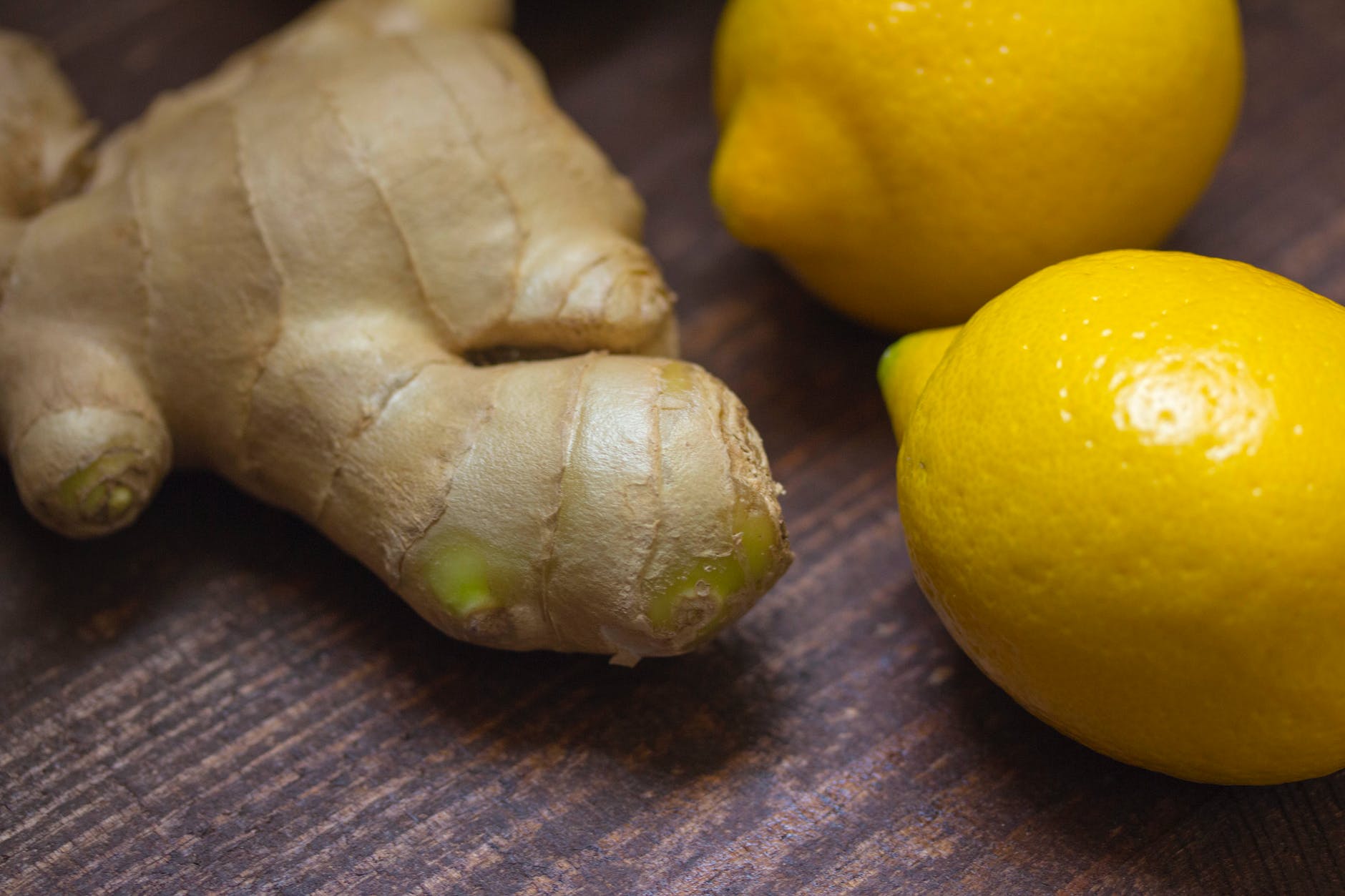
Our emotions have a profound effect on our health, often influencing our bodies in ways we might not realize. Traditional medicine, as well as modern psychological research, has explored how different emotions can weaken specific organs. Let’s break down the connections between emotions and organ health, as shown in the image.
- Anger Weakens Your Liver
Anger is a powerful emotion that can lead to more than just emotional stress. It can create imbalances in the liver, causing it to weaken over time. In traditional Chinese medicine, the liver is closely tied to emotional regulation, and frequent bouts of anger can disrupt its proper functioning. Chronic anger and irritability may contribute to liver problems such as inflammation or imbalances in bile production.
Solution: Practice anger management techniques such as mindfulness, deep breathing, and physical activities like yoga to help regulate emotions.
- Grief Weakens Your Lungs
Grief, often associated with loss, can take a toll on your lungs. The connection between grief and the lungs is well-documented in various cultures. People experiencing intense sadness or grief may feel difficulty breathing or develop respiratory issues such as asthma or bronchitis. It’s essential to give yourself time and space to process grief to avoid long-term physical health effects.
Solution: Healing from grief requires emotional expression and support. Journaling, counseling, or support groups can provide healthy outlets for your emotions.
- Worry Weakens Your Stomach
Worry and overthinking can negatively affect digestion. When you’re consumed by worry, the digestive system takes a hit, leading to issues like indigestion, ulcers, or irritable bowel syndrome (IBS). It’s common to hear that stress “eats you up inside,” and it turns out, there’s a real connection between excessive worry and stomach health.
Solution: Reduce worry by practicing mindfulness, maintaining a healthy diet, and avoiding overconsumption of stimulants like caffeine, which can exacerbate anxiety and digestive issues.
- Fear Weakens Your Kidneys
Fear, especially chronic or prolonged fear, can harm your kidneys. In ancient health traditions, fear is thought to deplete the energy of the kidneys, making them less effective in filtering toxins and managing the body’s water balance. It can also increase the risk of conditions like adrenal fatigue, which affects kidney function.
Solution: Facing your fears, practicing relaxation techniques, and managing anxiety can all help reduce the negative effects of fear on your kidneys
- Stress Weakens Your Heart and Brain
Stress is known to be one of the biggest contributors to heart disease, stroke, and brain-related issues. When stress levels are high, your heart and brain bear the brunt of it. Chronic stress can lead to high blood pressure, heart attacks, and cognitive decline. It’s important to manage stress proactively to avoid long-term damage to these critical organs.
Solution: Regular exercise, meditation, and adequate sleep are effective ways to manage stress. Also, consider activities that promote relaxation like reading, spending time in nature, or practicing deep breathing.
Understanding how emotions can affect our physical health is the first step in taking control of both our mental and physical well-being. By acknowledging the mind-body connection, we can develop healthier coping strategies to process emotions in ways that don’t negatively impact our organs. Emotional balance is not just about feeling good—it’s also essential for a healthier, stronger body. Starting your day with intention can significantly impact your overall wellbeing. Read Here.
By paying attention to how your emotions manifest physically, you can take proactive steps to support your overall well-being.










